Logrun (Excel) |
October 2, 2005 McKinney Triathlon (Stonebridge Ranch Beach and Tennis Club, McKinney, Texas) Olympic-distance triathlon Swim: 1,500 meters in 37:14 (Pace 2:29/M) or 24:49 T1: 5:58 Bike: 40K (~24.8 miles) in 1:23:22 Average speed: 17.8 mph; Pace: 3:21/mile T2: 5:51 Run: 10K (6.2 miles) in 53:12. Pace 8:35/mile Total time: 3:05:39 |
The Half (half marathon around White Rock Lake, Dallas). |
July 10, 2005 Disco Triathlon (Lake Grapevine, Grapevine, Texas) Swim: 500-yard open-water Bike: 19 mile Run: 3.1 mile (5K) Ignacio Socas, DALLAS 41 I Runner/Bib #431 Swim: 7:51 T1 3:43 Bike 1:12:17 (pace: 15.8 mile/hour) - (3:48 minute/mile) T2 1:56 Run 27:44 (pace: 8:57 mile/minute) TOTAL TIME: 1:53:29 |
Triathlon Training Programs (Excel) |
Marathon Training Programs (Excel) |
November 2, 2003 |
April 7, 2002 |
Finished in 3 hours, 55 minutes and 30 seconds (average of 8' 59" per mile or 5' 35" per kilometer) First half in 1 hour, 56 minutes and 53 seconds (average of 8' 55" per mile or 5' 33" per kilometer) Second half in 1 hour, 58 minutes and 37 seconds (average of 8' 59" per mile or 5' 35" per kilometer) Runner/Bib #: 6417 37,500 runners registered 31,871 started the marathon. 28,830 finished it (90.46% of all the starters) I finished number 9,183 (in the top 28.81% of all the starters) A runner that ran in 4 hours finished in the top 32.30% of all the starters (in position number 10,617) |
I S Personal Training Page (Running log) ID: isocas password: polo I S Personal Training Page (Cool running) ID isocas password: |
Runner's World (on "Training & Racing", go to "Calculators" for: Race Time Calculator, Race Pace Chart, Pace Calculator, Finish Time Calculator. etc.) Active.com (Pace calculator) Fred's Team (Memorial Sloan-Kettering Cancer Center) Fred's Team is a group of dedicated runners committed to raising funds for cancer research. Created in honor of Fred Lebow, founder and original director of the New York City Marathon, Fred's Team raises money for cancer research at Memorial Sloan-Kettering Cancer Center, where Fred received care for his own cancer. Some tips to make the most of the Marathon training (from Paris Marathon Web site) |
Run a Marathon, change your life. When a person completes their first marathon, the experience is one they carry with them for the rest of their life. The tremendous physical and psychological benefits from training for and finishing a 26.2 mile distance are truly remarkable... From usafit.com There will be days when you don't know if you can run a marathon. There will be a lifetime of knowing that you have. From Runner's World. If you want to run, then run a mile. If you want to experience another life, run a marathon. Emil Zatopek, Czech Republic, triple Olympic gold medalist in the 1952 Games, 5,000m, 10,000m and marathon The marathon is a charismatic event. It has everything. It has drama. It has competition. It has camaraderie. It has heroism. Every jogger can't dream of being an Olympic champion, but he can dream of finishing a marathon. Fred Lebow There is no great fun, satisfaction, or joy derived from doing something that's easy. John Wooden There is not magic bullet in marathoning. It takes patience and hard work to reach your goals. No nutritional supplement or specialized shoe takes the place of miles in the bank. The best training aide is a sense of humor. Keep it handy along the way. Don't be too hard on yourself. The marathon is the perfect metaphor: it all happens one step at a time. From New York Runners Club Web Site The big decision to run a marathon takes courage. Working toward this goal takes masterful juggling and a lot of tact, The little daily sacrifices fortity you marahon commitment. From New York Runners Club Web Site If you think you can or you think you can't, you are probably right. Henry Ford Finishers finish and winners win because they beleive they can. From New York Runners Club Web Site We run to undo the damage we've done to body and spirit. We run to find some part of ourselves yet undiscovered. John "The Penguin" Bingham (in Runners' world) If one can stick to training throughout many long years, then willpower is no longer a problem. It's raining? That doesn't matter. I'm tired? That's beside the point. It's simply that I have to. Emil Zatopek Training has to be a priority. Okay, maybe its not the top of the rung, but pretty close. Marathon training affects eating, sleeping, time management, and relationships. From New York Runners Club Web Site To accomplish great things, we must not only act, but also dream, not only plan, but also believe. Anatole France Try to remember that the marathon is not an event where success and failure are measured by a finishing time, but a celebration of many hours, weeks and miles spent with friends, organizations and self. It is where one discovers his or her strength, will and motivation to make the extraordinary possible and the unattainable within reach. Howard Kambara Watching the runners go by was an incredible sight from young to old, fit to not-so-fit, and runners from all over the world, I was in total awe. But the Finish Line is what captured my heart. Some barely being able to walk, some jumping for joy, some being taken away by medics. I was completely amazed at what I was privileged to be a part of. Miriam DaSilva (Volunteer at the Chicago Marathon 2001) The music of the marathon is a powerful martial strain, one of those tunes of glory. It asks us to forsake pleasures, to discipline the body, to find courage, to renew faith, and to become one's own person, utterly and completely. George Sheehan To run is to live. Everything else is just waiting. Mark Hanson Marathons stand like a mountain range above the mundane world of instant gratification and cheap pleasures. Crossing the finish line of any marathon is the culmination of a dream that had to overcome the pull of inertia and survive months of training. Jonathan Beverly (Boston marathoner) The miracle isn't that I finished... The miracle is that I had the courage to start. John "The Penguin" Bingham Never discourage anyone who continually makes progress, no matter how slow. Aristotle Nothing in the world can take the place of persistence. Talent will not; nothing is more common than unsuccessful men with talent. Genius will not; unrewarded genius is almost a proverb. Education alone will not; the world is full of educated derelicts. Persistence and determination alone are omnipotent. Calvin Coolidge The great tragedy of life is not in attempting too high a mark and missing, but in attempting one too low and succeeding. Michelangelo Buonarroti I can't worry about how fast the other guys are running. I can only do what I can do. The bottom line is that you can only do what you can do on any given day. No matter who you are Pam Reed (a 42-year-old mother of five that won the Badwater Ultramarathon in July 22, 2003 -a 135-mile run from Badwater, the lowest point in the US, to the slopes of Mt. Whitney, the highest peak in the lower 48, by a margin of nearly five hours. Pam Reed , in April 2003, hit the streets of the Boston Marathon four hours before the official start, running the course in reverse in 3:36. Then she drank some water, and ran with the masses, finishing in 3:30) "Nothing's Easy" (Michael, "Roads Scholar") "A Master's in Marathoning" (By Milke Tymn, from "Running Times") Train hard! Your legs will forgive you... eventually. Mi mensaje enviado en Julio 6, 2000 al Forum "Virtual Training" Subject: Response to "Why do you want to run a marathon?" I want to run a marathon because I am looking for discipline and consistency. For me it's hard to run. I'm not a natural runner and it also looks kind of boring compared with playing some sports which I've done all my life so it's going to be an important physical and mental challenge for me. I do believe in sacrifices and hard work and I admire those who can commit to them. I would like to be like them someday. I may be somewhat like them after October 22, 2000, or later if I don't run Chicago this year (which I plan to do). Someone told me few days ago (after running 6 marathons himself) that finishing your first marathon remains probably in the top 10 most importants events of your life, those events that you never forget. Hope so! And good luck to everybody, Ignacio Socas (socas@aol.com) |
Marathons; Triathlons; Training Programs |
October 22, 2000 |
December 10, 2000 |
Run a Marathon, change your life. When a person completes their first marathon, the experience is one they carry with them for the rest of their life. The tremendous physical and psychological benefits from training for and finishing a 26.2 mile distance are truly remarkable... From usafit.com There will be days when you don't know if you can run a marathon. There will be a lifetime of knowing that you have. From Runner's World. If you want to run, then run a mile. If you want to experience another life, run a marathon. Emil Zatopek, Czech Republic, triple Olympic gold medalist in the 1952 Games, 5,000m, 10,000m and marathon The marathon is a charismatic event. It has everything. It has drama. It has competition. It has camaraderie. It has heroism. Every jogger can't dream of being an Olympic champion, but he can dream of finishing a marathon. Fred Lebow There is no great fun, satisfaction, or joy derived from doing something that's easy. John Wooden There is not magic bullet in marathoning. It takes patience and hard work to reach your goals. No nutritional supplement or specialized shoe takes the place of miles in the bank. The best training aide is a sense of humor. Keep it handy along the way. Don't be too hard on yourself. The marathon is the perfect metaphor: it all happens one step at a time. From New York Runners Club Web Site The big decision to run a marathon takes courage. Working toward this goal takes masterful juggling and a lot of tact, The little daily sacrifices fortity you marahon commitment. From New York Runners Club Web Site If you think you can or you think you can't, you are probably right. Henry Ford Finishers finish and winners win because they beleive they can. From New York Runners Club Web Site We run to undo the damage we've done to body and spirit. We run to find some part of ourselves yet undiscovered. John "The Penguin" Bingham (in Runners' world) If one can stick to training throughout many long years, then willpower is no longer a problem. It's raining? That doesn't matter. I'm tired? That's beside the point. It's simply that I have to. Emil Zatopek Training has to be a priority. Okay, maybe its not the top of the rung, but pretty close. Marathon training affects eating, sleeping, time management, and relationships. From New York Runners Club Web Site To accomplish great things, we must not only act, but also dream, not only plan, but also believe. Anatole France Try to remember that the marathon is not an event where success and failure are measured by a finishing time, but a celebration of many hours, weeks and miles spent with friends, organizations and self. It is where one discovers his or her strength, will and motivation to make the extraordinary possible and the unattainable within reach. Howard Kambara Watching the runners go by was an incredible sight from young to old, fit to not-so-fit, and runners from all over the world, I was in total awe. But the Finish Line is what captured my heart. Some barely being able to walk, some jumping for joy, some being taken away by medics. I was completely amazed at what I was privileged to be a part of. Miriam DaSilva (Volunteer at the Chicago Marathon 2001) The music of the marathon is a powerful martial strain, one of those tunes of glory. It asks us to forsake pleasures, to discipline the body, to find courage, to renew faith, and to become one's own person, utterly and completely. George Sheehan To run is to live. Everything else is just waiting. Mark Hanson Marathons stand like a mountain range above the mundane world of instant gratification and cheap pleasures. Crossing the finish line of any marathon is the culmination of a dream that had to overcome the pull of inertia and survive months of training. Jonathan Beverly (Boston marathoner) The miracle isn't that I finished... The miracle is that I had the courage to start. John "The Penguin" Bingham Never discourage anyone who continually makes progress, no matter how slow. Aristotle Nothing in the world can take the place of persistence. Talent will not; nothing is more common than unsuccessful men with talent. Genius will not; unrewarded genius is almost a proverb. Education alone will not; the world is full of educated derelicts. Persistence and determination alone are omnipotent. Calvin Coolidge The great tragedy of life is not in attempting too high a mark and missing, but in attempting one too low and succeeding. Michelangelo Buonarroti I can't worry about how fast the other guys are running. I can only do what I can do. The bottom line is that you can only do what you can do on any given day. No matter who you are Pam Reed (a 42-year-old mother of five that won the Badwater Ultramarathon in July 22, 2003 -a 135-mile run from Badwater, the lowest point in the US, to the slopes of Mt. Whitney, the highest peak in the lower 48, by a margin of nearly five hours. Pam Reed , in April 2003, hit the streets of the Boston Marathon four hours before the official start, running the course in reverse in 3:36. Then she drank some water, and ran with the masses, finishing in 3:30) "Nothing's Easy" (Michael, "Roads Scholar") "A Master's in Marathoning" (By Milke Tymn, from "Running Times") Train hard! Your legs will forgive you... eventually. Mi mensaje enviado en Julio 6, 2000 al Forum "Virtual Training" Subject: Response to "Why do you want to run a marathon?" I want to run a marathon because I am looking for discipline and consistency. For me it's hard to run. I'm not a natural runner and it also looks kind of boring compared with playing some sports which I've done all my life so it's going to be an important physical and mental challenge for me. I do believe in sacrifices and hard work and I admire those who can commit to them. I would like to be like them someday. I may be somewhat like them after October 22, 2000, or later if I don't run Chicago this year (which I plan to do). Someone told me few days ago (after running 6 marathons himself) that finishing your first marathon remains probably in the top 10 most importants events of your life, those events that you never forget. Hope so! And good luck to everybody, Ignacio Socas (socas@aol.com) |
From Hal Higdon's "Marathon: The ultimate Training and Racing Guide" Marathon Immunity Marathon running also has the potential to increase life span and to increase the quality of that life span. Again, it's not so much the running of the race that affects your health but the lifestyle changes that often accompany the commitment to run the race. To become a successful runner/marathoner, you need to: (1) follow a proper diet, (2) eliminate extra body fat, (3) refrain from smoking and avoid heavy drinking, (4) get adequate amounts of sleep and (5) exercise regularly. Epidemiologists such as Ralph E. Paffenbarger, MD, who analyzed the data of Harvard University alumni, have determined that these five lifestyle changes have the potential to add several years to our lives. The marathon lifestyle is definitely a healthy lifestyle... Bigger and Better And there definitely is a mystique--no doubt about it. You can run 5-K races until your dresser drawers overflow with T-shirts, but it's not quite the same as going to the starting line of a marathon. "For many runners, it is their personal measuring post and the one distance they want to conquer," says Robert Eslick, a coach from Nashville, Tennessee. Marathons, on average, seem to be bigger events than 5-K or 10-K races, even when those shorter-distance events attract larger fields. Arrive several days in advance of a marathon and you know you're at a Big Event, regardless of how many people are entered. Maybe the excitement is partly anticipation among those entered. Each runner has committed so many miles in training for this one event that the race takes on a level of importance above and beyond the ordinary, regardless of the size of the field. One year I visited Toledo, Ohio, to lecture the night before the Glass City Marathon, which attracted about 500 runners. Compared to New York or Honolulu or London with their 30,000-runner fields, that's pretty small potatoes. Yet despite Glass City's relatively small field, the same pre marathon excitement was present. I could feel it around me as I spoke. People often talk about there being a "glow" around pregnant women. That's certainly true, but there's a similar glow around expectant marathoners. Many of them also have devoted nine months of preparation for their big event. All of those people in my audience at Toledo had worked hard to get ready for the race. Looking at their faces, I envied them... Footsteps of Pheidippides The establishment of the marathon at the unquestionably odd distance of 26 miles and 385 yards (or 42.2 kilometers) certainly adds to the mystique. The first event to be called a marathon was held in 1896 at the first modern Olympic Games in Athens, Greece. This long-distance foot race was staged at the end of those games to re-create and commemorate the legendary run of Pheidippides in 490 BC In that year, the Persians invaded Greece, landing near the plains of Marathon on Greece's eastern coast. According to the legend, an Athenian general dispatched Pheidippides, a hemerodromo, or runner-messenger, to Sparta (150 miles away) to seek help. Pheidippides reportedly took two days to reach Sparta. The Spartans never did arrive in time to help, but the Athenians eventually overwhelmed their enemy, killing 6,400 Persian troops while losing only 192 of their own men. Or so it was recorded by Greek historians of the time. I believe the actual running of the marathon is secondary to the training leading up to the event. If you love to run, then you appreciate the motivation the marathon provides for those long Sunday runs and those fast midweek track workouts. Marathon training focuses the mind, and that may be the best excuse for racing this distance. The event that is so popular today might not be the same if the plains of Marathon had been closer to Athens. Exercise physiologists tell us that it is only after about two hours of running--or about 20 miles for an accomplished runner--that the body begins to fully deplete its stores of glycogen, the energy source that fuels the muscles. Once glycogen is depleted, the body must rely more on fat, a less efficient fuel source. This is one of the reasons runners hit the "Wall" at 20 miles, and successfully getting past that obstacle is what makes the marathon such a special event. Many of us who consider ourselves accomplished runners--and who are well trained--run 20-milers as part of our marathon buildup without excessive pain and with little fanfare. It is only when we stretch beyond that point that people sit up and take notice. Would a million people line the roads at the Boston and New York City marathons if the distance were only 20 miles and if there were no Wall to conquer? No, they want to see us tempt the fate of Pheidippides. They come to see us suffer, although inevitably both spectator and runner leave fulfilled only if we demonstrate through our successful crashing through the Wall and crossing of the finish line (regardless of our times) that we are victorious. Changing Your Life For many, completing one marathon is enough. Particularly this is true of many first-timers today. It changes their lives forever. Professional photographers who take pictures of runners crossing the finish line find that two or three times as many people order prints of their marathon finishes, compared to runners who finish shorter races. It's the same reason that people order more pictures at weddings. It's an extra special event. It's like tacking a Ph.D. at the end of your name, getting married, having a baby. You're special, whether anyone else knows it or not. You certainly do. Your life will never again be quite the same, and regardless of what the future brings, you can look back and say, "I finished a marathon." Others consider it a continuing challenge of numbers: personal records (or PRs), which exist to be bettered at each race. Even when inevitable declines in performance accompany aging, new challenges arise as the lifetime marathoner moves from one five-year bracket to another. It is also possible to run marathons recreationally, not caring about time or finishing position but participating merely for the joy of attending a Great Event with all its accompanying pleasures. I have run many marathons in this manner, running within myself and finishing far back from where I might have, had I pushed the pace harder... I've also run marathons with planned dropout points, using the race as a workout to prepare for later marathons. At the World Veterans Championships in Rome in 1985, I ran the marathon at the end of a week's track competition mainly so I could enjoy the sights and sounds of the Eternal City. Entering a piazza in the last miles of the race with a panoramic view across the Tiber River of St. Peter's Cathedral, I paused for several minutes to absorb that view, then continued toward the stadium used for the 1960 Olympic Games. How fast I ran, or how well I placed, were the last things on my mind. Crossing the finish line, more refreshed than fatigued, I was approached by an Australian runner, who announced, "This is the first time I ever beat you." I felt obliged to correct him: "You didn't beat me. You merely finished in front of me." The Australian stammered an apology, but he had missed the point of the marathon. Or at least the marathon the way I had chosen to run it that particular day. In the marathon, you don't beat others, as you might in a mile or a 100-meter dash. Instead, you achieve a personal victory. If others finish in front of or behind you, it is only that their personal victories are more or less. A person finishing behind you with lesser talent, or a different age, or sex, or various other limiting factors, may have achieved a far greater victory than yours. At the 1992 Boston Marathon, John A. Kelley, age 84, finished in a time of 5:58:32. The officials stopped timing at five hours, at which point 8,120 runners had crossed the line (not counting those running unofficially without numbers). It was the 61st and final time "Old John," a two-time winner of the race, would run Boston. None of the thousands finishing in front of Kelley could be said to have beaten him. He is a legend--like Pheidippides. One beauty of the marathon is that there are many more winners than those who finish first overall or in their age groups. "Everyone's a winner" is a dreadful cliché, but it happens to be true when the race involved is 26 miles and 385 yards long. Here's the complete story about why the Marathon's distance is such an odd 26.2 miles: According to "The Olympic Marathon" (by David E. Martin and Roger W. H. Glynn), the 1896 Athens Olympic Marathon course was about 24.8 miles long. In 1900, the Olympic Marathon course was 25 miles, and in 1904, it was 24.8 miles again. In 1908, at the London Olympics, the course was lengthened to 26 miles, 385 yards, so that the Princess of Wales could view the start outside Windsor Castle, and Queen Alexandra could see the runners finish directly in front of her royal box in London's White City Stadium. From this date (July 24, 1908) onward, the official marathon distance has been 26 miles, 385 yards. |
Finished in 4 hours, 37 minutes and 45 seconds (average of 10:36 per mile or 6:35 per kilometer) First half in 2 hours, 7 minutes and 13 seconds (average of 9:43 per mile or 6:02 per kilometer) Second half in 2 hours, 30 minutes and 32 seconds (average of 11:29 per mile or 7:08 per kilometer) Runner/Bib #: 6634 33,000 runners registered. 29,074 started the marathon. 27,956 finished it (96.15% of all the starters) A runner that ran in 4 hours finished in the top 34.39% of all the starters (in position number 10,000) |
Finished in 4 hours, 30 minutes and 42 seconds (average of 10:20 per mile or 6:25 per kilometer) First half in 1 hour, 57 minutes and 35 seconds (average of 8:59 per mile or 5:35 per kilometer) Second half in 2 hours, 32 minutes and 7 seconds (average of 11:37 per mile or 7:13 per kilometer) Runner/Bib #: 2803 3,606 runners started the marathon. 3,153 fnished it (87.44% of all the starters) A runner that ran in 4 hours finished in the top 26.65% of all the starters (in position number 961) |
March 18, 2001 |
Finished in 4 hours, 25 minutes and 6 seconds (average of 10:07 per mile or 6:17 per kilometer) First half in 2 hours, 3 minutes and 3 seconds (average of 9:24 per mile or 5:50 per kilometer) Second half in 2 hours, 22 minutes and 3 seconds (average of 10:51 per mile or 6:44 per kilometer) Runner/Bib #: 2409 3,100 runners started the marathon (215 women; 7% of all starters) 2,958 finished it (95.42% of all the starters) A runner that ran in 4 hours finished in the top 67.10% of all the starters (in position number 2,080) |
Runner's World (on "Training & Racing", go to "Calculators" for: Race Time Calculator, Race Pace Chart, Pace Calculator, Finish Time Calculator. etc.) Active.com (Pace calculator) Fred's Team (Memorial Sloan-Kettering Cancer Center) Fred's Team is a group of dedicated runners committed to raising funds for cancer research. Created in honor of Fred Lebow, founder and original director of the New York City Marathon, Fred's Team raises money for cancer research at Memorial Sloan-Kettering Cancer Center, where Fred received care for his own cancer. Some tips to make the most of the Marathon training (from Paris Marathon Web site) |
October 7, 2001 |
I S Personal Training Page (Running log) ID: isocas password: polo I S Personal Training Page (Cool running) ID isocas password: |
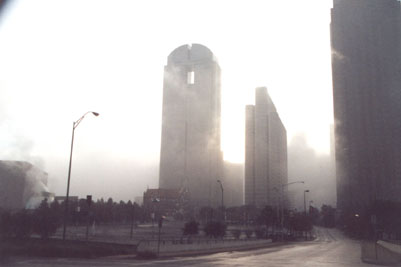
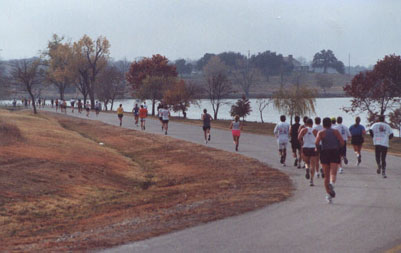
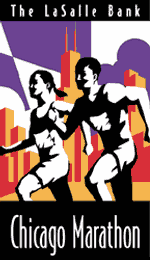
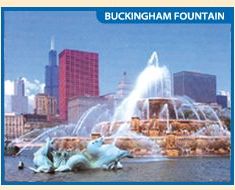
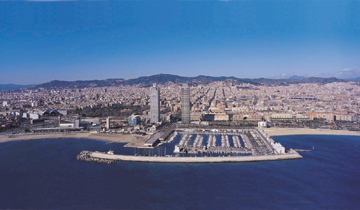
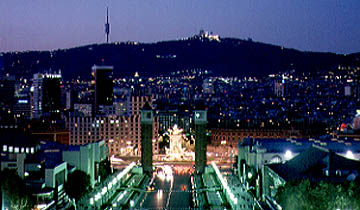
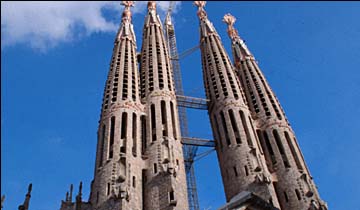
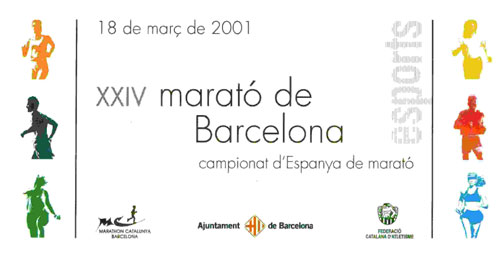
December 9, 2001 |
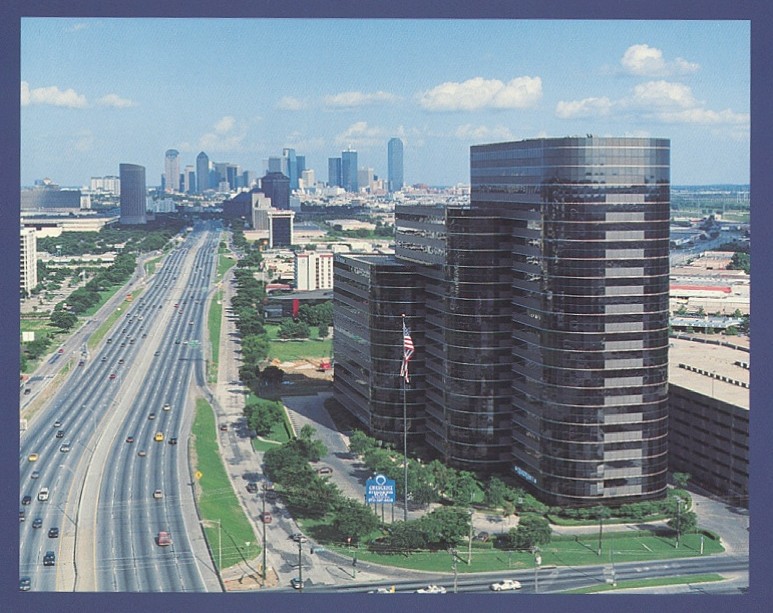
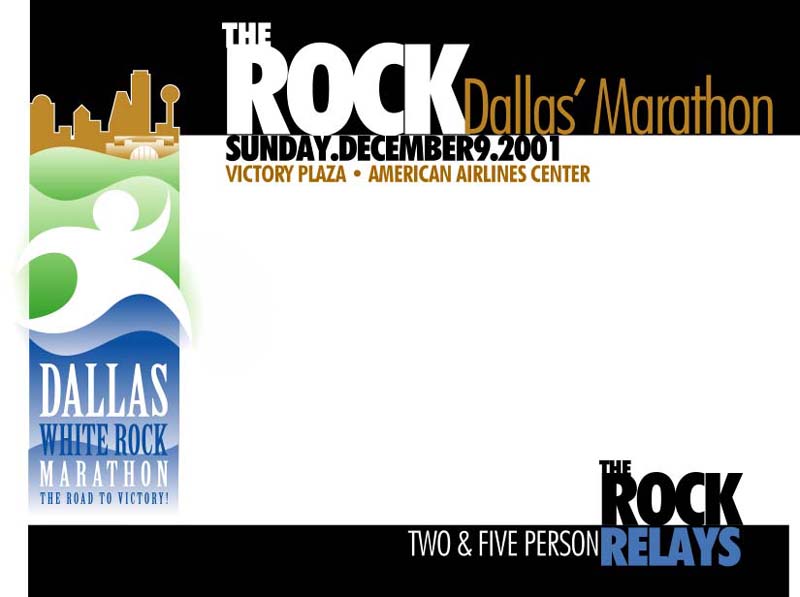
The 23rd Chicago Marathon started and finished few meters from the Buckingham Fountain |
Finished in 3 hours, 55 minutes and 30 seconds (average of 8' 59" per mile or 5' 35" per kilometer) First half in 1 hour, 56 minutes and 53 seconds (average of 8' 55" per mile or 5' 33" per kilometer) Second half in 1 hour, 58 minutes and 37 seconds (average of 8' 59" per mile or 5' 35" per kilometer) Runner/Bib #: 6417 37,500 runners registered 31,871 started the marathon. 28,830 finished it (90.46% of all the starters) I finished number 9,183 (in the top 28.81% of all the starters) A runner that ran in 4 hours finished in the top 32.30% of all the starters (in position number 10,617) |
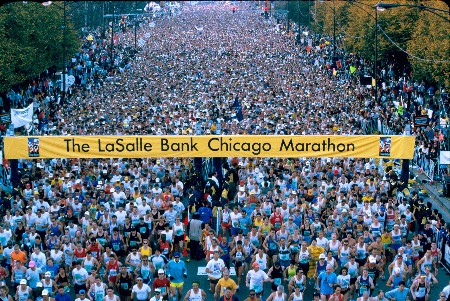
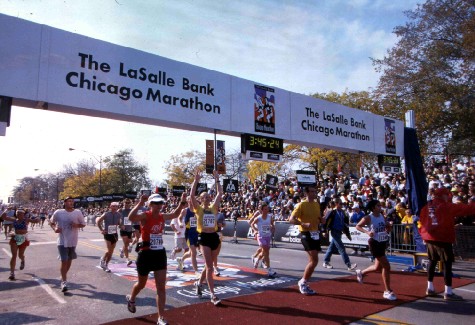
The start |
The finish line |
April 7, 2002 |
November 2, 2003 |

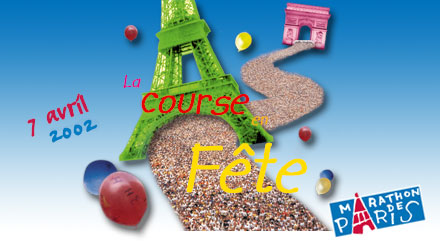
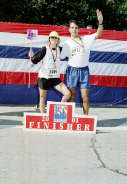
After the finish line, with Beth Frazier (4.00 Hours Pacing Team Leader) |
Finished in 3 hours, 56 minutes and 46 seconds (average of 9' 02" per mile or 5' 37" per kilometer) First half in 1 hour, 53 minutes and 43 seconds (average of 8' 41" per mile or 5' 24" per kilometer) Second half in 2 hours, 03 minutes and 03 seconds (average of 9' 24" per mile or 5' 50" per kilometer) Runner/Bib #: 978 3,949 started the marathon. 3,443 finished it (87.19% of all the starters) I finished number 1,157 (in the top 29.30% of all the starters) A runner that ran in 4 hours finished in the top 32.39% of all the starters (in position number 1,260) |
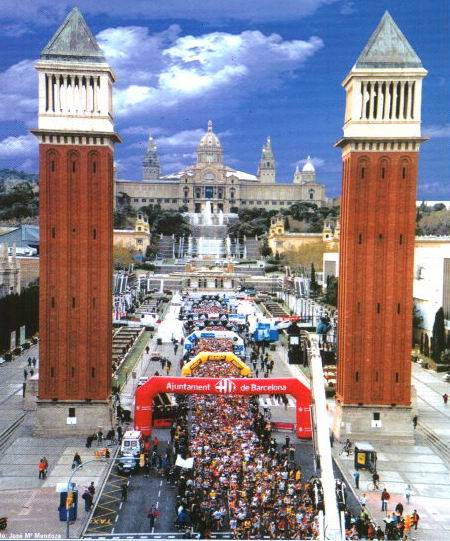

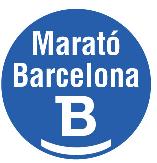
Finished in 4 hours, 8 minutes and 53 seconds (average of 9' 30" per mile or 5' 54" per kilometer) First half in 1 hour, 48 minutes and 34 seconds (average of 8' 17" per mile or 5' 09" per kilometer) Second half in 2 hours, 20 minutes and 18 seconds (average of 10' 43" per mile or 6' 39" per kilometer) Runner/Bib #: 26199 28,846 runners registered (men 86.4%; women 13.6%). International runners: 5,968 (20.7%) 24,583 started the marathon 24,025 finished it (97.73% of all the starters) I finished number 15,613 (in the top 63.51% of all the starters) A runner that ran in 4 hours finished in the top 49.57% of all the starters (in position number 12,187) |
Marathons Highlights: · First two marathons in 49 days (CHI 10/22/00; DAL 12/10/00) · Three marathons in less than 5 months (CHI 10/22/00; DAL 12/10/00; BCN 3/18/01) · Four marathons in less than 1 year (CHI 10/22/00; DAL 12/10/00; BCN 3/18/01; CHI 10/7/01) · Five marathons in 13.5 months (CHI 10/22/00; DAL 12/10/00; BCN 3/18/01; CHI 10/7/01; DAL 12/9/01) · Three marathons in one calendar year (BCN 3/18/01; CHI 10/7/01; DAL 12/9/01) · Two sub-4-hour marathons in 2 months (CHI 10/7/01; DAL 12/9/01) · Six marathons in 17.5 months (CHI 10/22/00; DAL 12/10/00; BCN 3/18/01; CHI 10/7/01; DAL 12/9/01; PAR 4/7/02) · Seven marathons in 3 years and 11 days (CHI 10/22/00; DAL 12/10/00; BCN 3/18/01; CHI 10/7/01; DAL 12/9/01; PAR 4/7/02; NYC 11/2/03) |
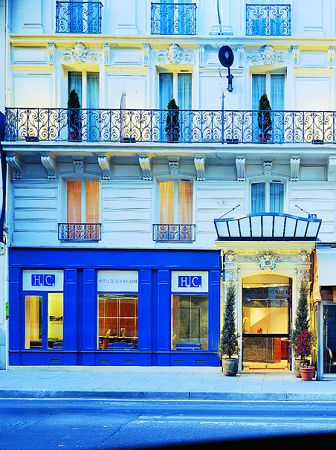
Hotel Chateaudun (my hotel in Paris for the marathon) |
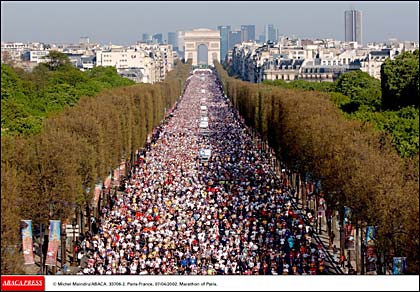
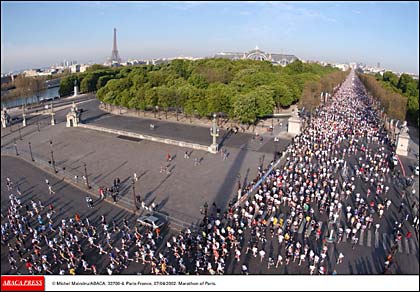
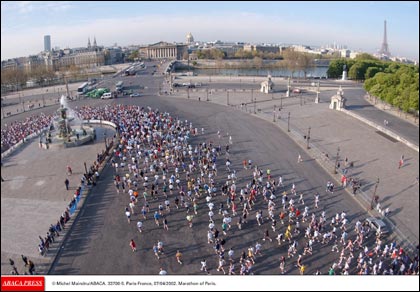
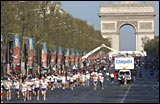
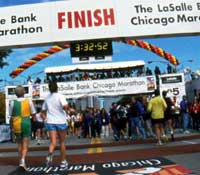
The Finish line |
Finished in 4 hours, 58 minutes and 47 seconds (average of 11:24 per mile or 7:05 per kilometer) First half in 2 hours, 7 minutes and 10 seconds (average of 9:42 per mile or 6:02 per kilometer) Second half in 2 hours, 51 minutes and 37 seconds (average of 13:06 per mile or 8:08 per kilometer) Runner/Bib #: 18090 36,000 runners registered. 35,286 started the marathon. 34,729 finished it (Despite unseasonably warm temperatures and high humidity, 98.42 percent of the people who started the race on the Verrazano-Narrows Bridge in Staten Island reached the finish line in Manhattan's Central Park) -The 2003 ING New York City Marathon was the largest in the world with 34,729 finishers- A runner that ran in 4 hours finished in the top 21.92% of all the starters (in position number 7,736) Temperature at start: more than 65F (18C), then up to 75F (24C), with 80% humidity.. Bad conditions to run a marathon. |
"Most people won't even drive that far today" Sunday, November 2, 2003 New York City Marathon (Nike's advertising on billboards around New York on marathon week) |
Marathon Training Programs (Excel) |
Triathlon Training Programs (Excel) |
TRIATHLONS |
July 10, 2005 Disco Triathlon (Lake Grapevine, Grapevine, Texas) Swim: 500-yard open-water Bike: 19 mile Run: 3.1 mile (5K) Ignacio Socas, DALLAS 41 I Runner/Bib #431 Swim: 7:51 T1 3:43 Bike 1:12:17 (pace: 15.8 mile/hour) - (3:48 minute/mile) T2 1:56 Run 27:44 (pace: 8:57 mile/minute) TOTAL TIME: 1:53:29 |
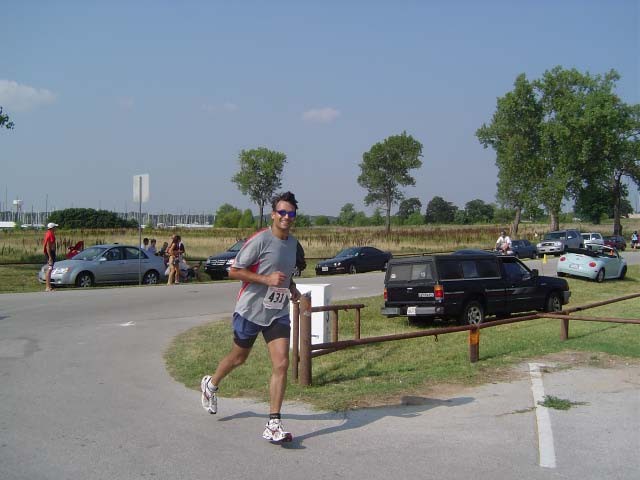
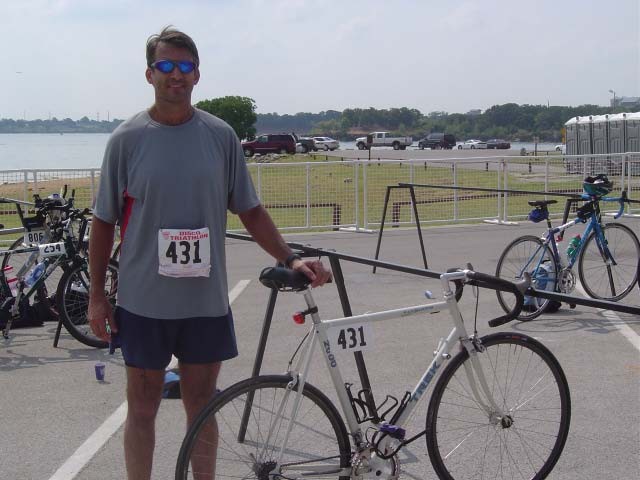
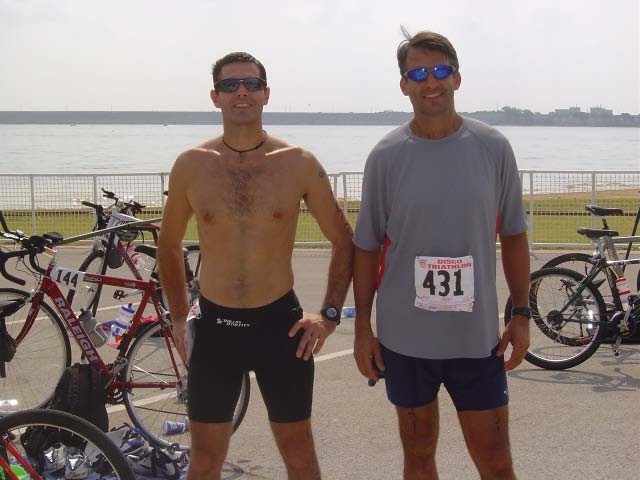
Con Segundo Saenz despues del triatlon |
November 3, 2001 |
The Half (half marathon around White Rock Lake, Dallas). |
Finished in 1 hour, 59 minutes and 43 seconds (average of 9' 08" per mile) Runner/Bib #: 2530 |
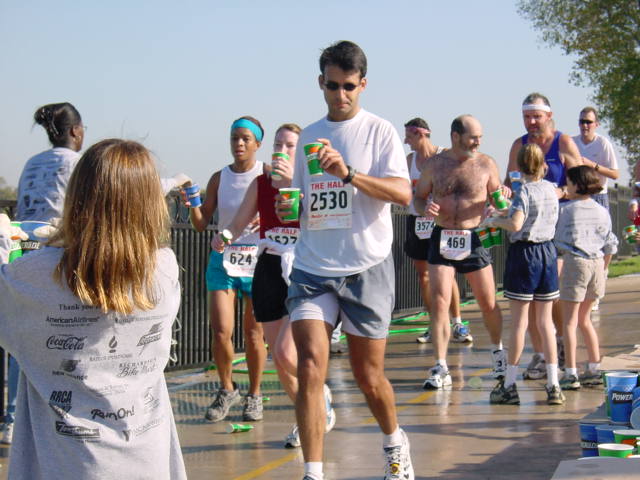
Water stop at The Half |
Downtown Dallas' skyline |
October 2, 2005 McKinney Triathlon (Stonebridge Ranch Beach and Tennis Club, McKinney, Texas) Olympic-distance triathlon Swim: 1,500 meters in 37:14 (Pace 2:29/M) or 24:49 T1: 5:58 Bike: 40K (~24.8 miles) in 1:23:22 Average speed: 17.8 mph; Pace: 3:21/mile T2: 5:51 Run: 10K (6.2 miles) in 53:12. Pace 8:35/mile Total time: 3:05:39 |
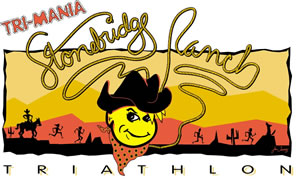
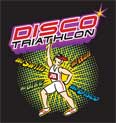
Antes de la nadada |
Saliendo del agua y rumbo a subirme a la bicicleta |
Ultimos metros del triatlon |
Con Segundo Saenz antes del triatlon |
Con Segundo despues de la llegada |
Con Segundo y Nico, y nuestras Cervelo Ones |
Logrun (Excel) |